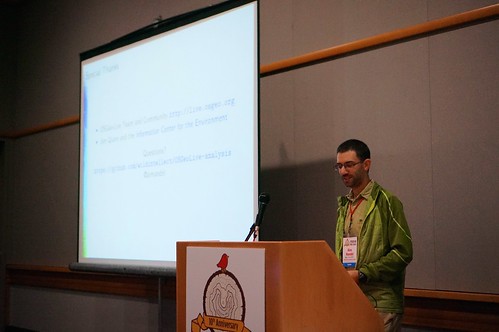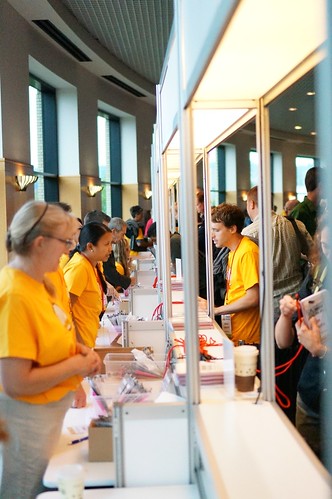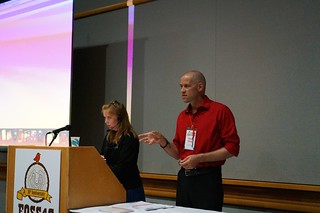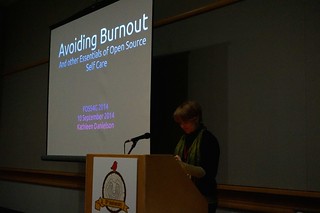I am having a great time going over workshop material for
FOSS4G. I have two
workshops on the go and am totally looking forward to seeing everyone next week in Portland.
FOSS4G workshops - sign up now!
Time and time again workshops are listed as the highlight of the foss4g experience. One of the key advantages of open source is a chance to follow up that key hands-on experience with the opportunity to take the software home to show your friends.
There has been some experimentation with offering lightweight labs (read: no additional cost) in parallel with the main program. While a fun idea, it is kinder to all involved to keep the number of conference tracks to a minimum to avoid that feeling of "missing out" no matter what room you are in.
Why not make workshops the highlight of your foss4g?
- If you have not signed up for FOSS4G what are you waiting for! The workshops on offer are incredible and represents some of the best value in open source training available. The registration page appears to still be open :)
- If you already made your plans and were skipping the workshops to save some money - don't! The workshops are cheap-as-chips. Come a day early as there is no substitute for the hands-on goodness of a workshop.
As a final plea: you are going to come back (bruised and battered) from a week of the most amazing geospatial software, friendly community, and buzz of ideas and enthusiasm. As you crawl into work on Monday and are asked "how was it?" - make sure to attend a workshop so you have something to show.
If you cannot make the trip I would be remiss if I did not mention the online training/certification offered by Boundless. The material is extensive and Mike and Ben have done a great job introducing each section with videos.
GeoServer Cartography and Styling
I have had the privilege of teaching GeoServer previously - and the one consistent request is for more on mapping and styling! One day introduction course - more mapping and styling. Two day intensive course for web developers - more mapping and styling. Five day course with a day devoted to Styling? More mapping and styling please ...
With this workshop I can finally answer this request! The use of the CSS extension (to generate SLD files) finally allows a workshop to cover enough ground!
 |
| Dynamic Symbology Example |
For everyone attending this workshop you are in for a real treat. Thanks to David Winslow for the CSS extension, and thanks to Boundless for the time and inspiration to pull this course together.
As indicated in the course description lab machines are provided, show up, have fun and learn a ton.
GeoTools DataStore Workshop
I am thankful for the opportunity to teach a GeoTools workshop (programming workshops are occasionally a hard sell next to running applications like GeoServer). And this is not any GeoTools workshop, it is an intermediate workshop on how to create a DataStore from scratch.
 |
| ContentDataStore and Friends |
A lot of work has gone into ContentDataStore (shown above). This really is the underpinnings of the "next-generation" database, shapefile and the recently announced wfs-ng client.
This workshop marked as BYOD, meaning you can relax in the comfort of your own development environment.










